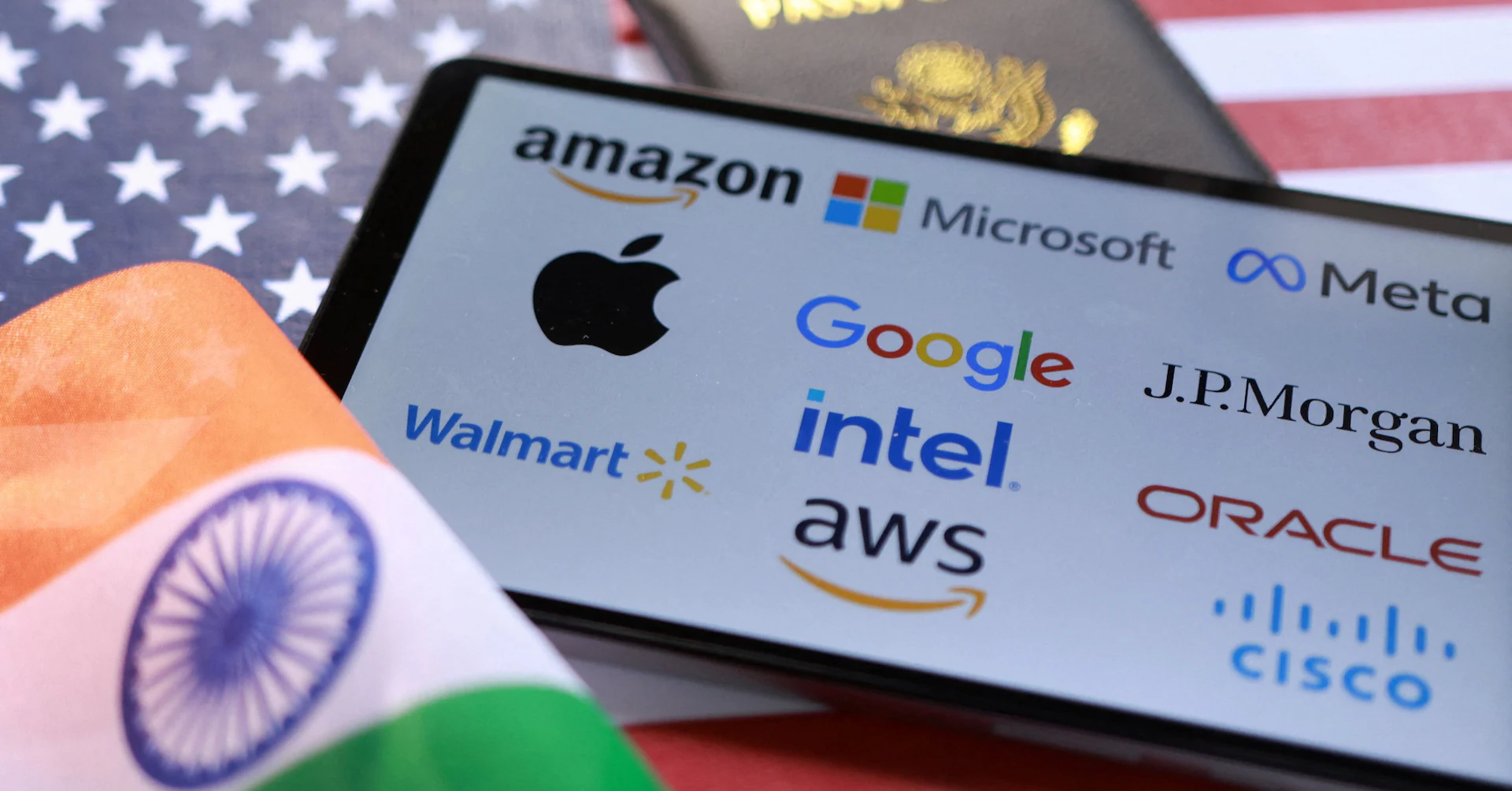
The world’s fifth-largest economy is home to 1,700 GCCs, or more than half the global tally, having outgrown its tech support origins to become a hub of high-value innovation in areas from design of luxury car dashboards to drug discovery.
Sign up here.
Trends such as growing adoption of artificial intelligence and increasing curbs on visas are pushing U.S. firms to redraw labour strategies, with GCCs in India emerging as resilient hubs blending global skills with strong domestic leadership.
“GCCs are uniquely positioned for this moment. They serve as a ready in-house engine,” said Rohan Lobo, partner and GCC industry leader at Deloitte India, who said he knew of several U.S. firms reassessing their workforce needs.
“Plans are already underway” for such a shift, he added, pointing to greater activity in areas such as financial services and tech, and particularly among firms with exposure to U.S. federal contracts.
Lobo said he expected GCCs to “take on more strategic, innovation-led mandates” in time.
U.S. President Trump raised the cost of new H-1B visa applications this month to $100,000, from an existing range of $2,000 to $5,000, adding pressure on U.S. firms that relied on skilled foreign workers to bridge critical talent gaps.
On Monday, U.S. senators reintroduced a bill to tighten rules on the H-1B and L-1 worker visa programmes, targeting what they called loopholes and abuse by major employers.
If Trump’s visa curbs go unchallenged, industry experts expect U.S. firms to shift high-end work tied to AI, product development, cybersecurity, and analytics to their India GCCs, choosing to keep strategic functions in-house over outsourcing.
Growing uncertainty fuelled by the recent changes has given fresh impetus to discussions about shifting high-value work to GCCs that many firms were already engaged in.
REASSESSING INDIA STRATEGIES
Such a rush could lead to “extreme offshoring” in some cases, said Ramkumar Ramamoorthy, a former managing director of Cognizant India, adding that the COVID-19 pandemic had shown key tech tasks could be done from anywhere.
All have major operations in India but did not want to comment as the issue is a politically sensitive one.
“Either more roles will move to India, or corporations will near-shore them to Mexico or Colombia. Canada could also take advantage,” said the India head of a retail GCC.
“This whole ‘gold rush’ will only get accelerated,” Ahuja said.
IMPLICATIONS FOR INDIA
Others were more skeptical, preferring a “wait and watch” approach, especially as U.S. firms could face a 25% tax for outsourcing work overseas if the proposed HIRE Act is passed, bringing significant disruption in India’s exports of services.
“For now, we are observing and studying, and being ready for outcomes,” said the India head of a U.S. drugmaker’s GCC.
India-U.S. trade tension has spilled into services from goods, with visa curbs and the proposed HIRE Act threatening to reduce India’s lower-cost edge and choke cross-border flows of services.
While the $283-billion IT industry that contributes nearly 8% of India’s GDP may feel the strain, surging demand for GCC services could cushion such a blow, however.
“Lost revenues from H-1B visa reliant businesses could be somewhat supplanted by higher services exports through GCCs, as U.S.-based firms look to bypass immigration restrictions to outsource talent,” Nomura analysts said in a research note last week.
Reporting by Sai Ishwarbharath B, Haripriya Suresh, Abhirami G, Abinaya V, Chandini Monnappa in Bengaluru, Rishika Sadam in Hyderabad, and Praveen Paramasivam in Chennai; Editing by Dhanya Skariachan
Our Standards: The Thomson Reuters Trust Principles., opens new tab
Haripriya reports on India’s $254-billion Indian information technology (IT) industry, the country’s burgeoning GCCs, as well as new-age startups. With seven years of experience, she has previously reported on politics, civic issues, crime, and breaking news in south India, and tracked the country’s gig economy. She has a degree in Media Studies with a specialisation in journalism from the Symbiosis Centre for Media and Communication.



